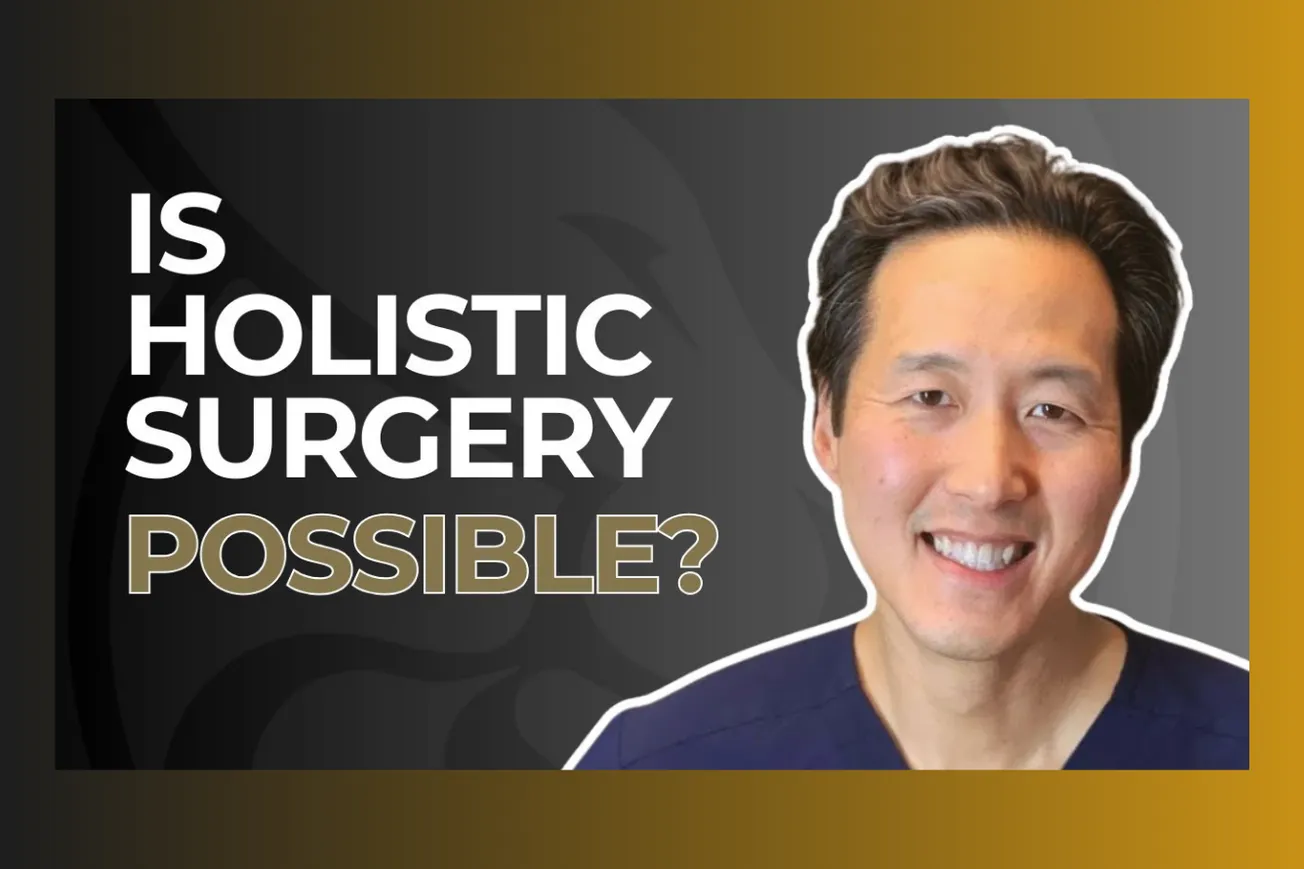Table of Contents
Dr. Anthony Youn redefines plastic surgery as more than cosmetic change. From tragedy to transformation, he blends surgery, wellness, supplements, and non-invasive therapies for lasting health.
Key Takeaways
- Plastic surgery should complement, not replace, lifestyle-driven health.
- Autojuvenation is Youn’s philosophy: patients can tap natural healing to age gracefully.
- Supplements before and after surgery lower complications and speed recovery.
- Liposuction reshapes but cannot replace weight loss or fix metabolic health.
- Genetics define body fat patterns; surgery can improve but not override them.
- Modern lipo is safer but still invasive and should be a considered choice.
- Non-invasive treatments—when matched correctly—can yield powerful results without downtime.
- A skilled surgeon is measured by how they manage complications, not just perfect results.
Holistic Plastic Surgery: A Philosophy of Last Resort Surgery
- Youn challenges the stereotype of plastic surgery as vanity-driven. He reframes it as part of whole-person wellness, with surgery reserved for when other measures fail.
- “Holistic plastic surgery” integrates:
- Lifestyle interventions: sleep, diet, stress management, exercise.
- Supplements: supporting immunity, collagen, and healing.
- Non-invasive technologies: red light, microneedling, lasers.
- Surgery: as a final tool when the above are not enough.
- This reordering matters because surgery, though powerful, disrupts the body. True holistic care seeks health first, aesthetics second.
- His patients often begin with non-invasive treatments, adopt supplements, and only move toward surgery after maximizing all alternatives.
The Facelift Tragedy That Redefined a Career
- A pivotal event: one of Youn’s facelift patients, healthy and active, died suddenly of a heart attack days after surgery.
- The tragedy forced Youn to reflect on the paradox of elective surgery: “We take healthy people, make them unhealthy, hoping they’ll come out healthier.”
- He nearly quit plastic surgery, questioning its ethics. Instead, he rebuilt his practice with a deeper philosophy—Autojuvenation.
- Autojuvenation means activating the body’s healing and regenerative abilities:
- Optimizing protein intake and collagen-building nutrients.
- Using fasting and anti-inflammatory diets.
- Employing non-invasive energy-based devices to stimulate the skin.
- Preserving surgery as an option, but not the default.
- This event permanently altered how he treats patients—favoring safety, long-term wellness, and honesty about risks.
Supplements as Tools for Healing and Prevention
- Youn designed his supplement protocol by adapting ICU and trauma research to surgery. He found that nutrition determines recovery speed and complication risk.
- His supplement plan included:
- Amino acids (arginine, glutamine): crucial for wound healing, immune function, and preventing muscle loss during recovery.
- Bromelain and serrapeptase: natural enzymes that reduce swelling, bruising, and inflammation.
- Probiotics: improve gut microbiome, supporting systemic immunity and reducing infection risk.
- Omega-3 fatty acids: anti-inflammatory effects accelerate tissue repair and lower post-op pain.
- Multivitamins with amino acids: prevent deficiencies that can delay skin and tissue healing.
- Patients started supplements two weeks before surgery and continued for six weeks after.
- Results:
- Lower rates of post-op infection.
- Reduced bruising and swelling.
- Faster wound closure.
- Patients often reported higher energy levels post-op.
- Many patients continued supplements beyond recovery, using them as part of long-term wellness—blurring the line between “pre-op prep” and everyday health.
Liposuction: Reality vs. Myths
- Youn clarifies key misconceptions:
- Not a weight-loss solution: Liposuction only removes subcutaneous fat, not the visceral fat linked to heart disease and diabetes.
- Safe limits: At most, 5 liters (~10 pounds) of fat can be removed per surgery. Going beyond increases risks of fluid imbalance and blood loss.
- Body contouring, not curing obesity: Best for patients already near a healthy weight but struggling with stubborn fat pockets.
- Genetics and fat distribution:
- Some people inherit double chins, belly pouches, or saddlebag thighs.
- Liposuction improves shape but doesn’t alter genetic fat storage patterns.
- Fat regrowth after lipo:
- Fat cells removed are gone permanently.
- Remaining cells can still enlarge if patients gain weight.
- Sometimes, fat grows disproportionately in untreated areas.
- Evolution of safety:
- Dry lipo (early method): performed without fluid, leading to high blood loss and even deaths.
- Tumescent lipo (modern): uses fluid with lidocaine and epinephrine, which minimizes bleeding and makes procedures safer.
- Despite improvements, Youn stresses: liposuction remains an invasive surgery requiring anesthesia, downtime, and careful monitoring.
Non-Invasive Therapies: Tools of Autojuvenation
- Dr. Youn emphasizes that many patients can achieve results without surgery. His most recommended options:
- Red Light Therapy: affordable, safe, and proven to boost collagen and elastin production within weeks.
- Microneedling: effective for texture issues, acne scars, and fine lines; minimally invasive with short recovery.
- Lasers:
- Fractional lasers: create micro-injuries to stimulate collagen, safer than older CO₂ lasers.
- Ablative lasers: strong but require longer recovery, reserved for deep wrinkles or severe scarring.
- IPL (Intense Pulsed Light) and BBL (Broadband Light): target pigmentation, redness, and sun damage. Results vary, and they are often oversold for wrinkles.
- He urges patients to match treatments to needs and budgets, not marketing hype. Many spend thousands on lasers when red light or microneedling could suffice.
What Makes a Skilled Surgeon? Managing Complications
- Youn insists: “Every surgeon will face complications—it’s not if, it’s when.”
- The real measure of skill is how a surgeon responds to complications:
- Do they support the patient long-term?
- Do they take responsibility and provide solutions?
- Or do they abandon patients when things go wrong?
- He warns against medical tourism and unqualified “cosmetic surgeons” who offer cheap procedures but leave patients stranded when problems arise.
- In contrast, board-certified surgeons with a holistic mindset prioritize both immediate surgical success and long-term wellness.
Plastic surgery, as redefined by Dr. Anthony Youn, is not about erasing age or chasing trends. It is about using every tool—diet, supplements, non-invasive technologies, and, when necessary, surgery—to help people feel healthier, look natural, and live stronger. His philosophy makes beauty a part of wellness, not apart from it.





